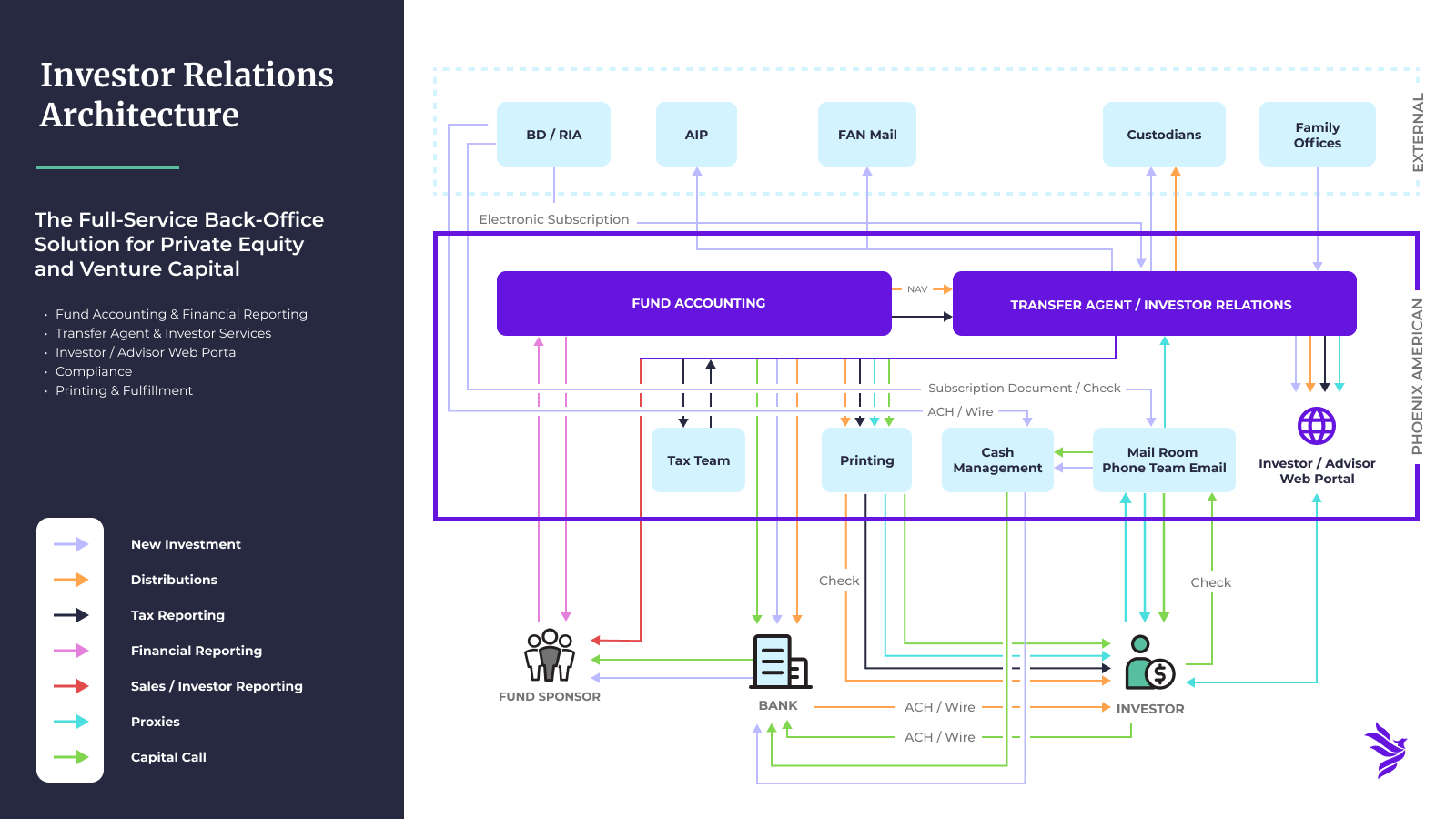Investor relations for a private equity or venture capital fund is an intricate business. There is no cookie-cutter approach that satisfies all the needs and expectations of investors. Just as the administrative needs of alternative funds are unique and require customization, so are the needs of their investors. Investment strategy and asset class are important factors for fund administration but the type of investor will do more to govern the investor relations strategy. There are four distinct investor classes to consider.
Institutional Investors
The essential consideration in investor relations for institutional investors is reporting and transparency. The ability of the investor relations team to deliver detailed reporting on the management and performance of the fund and the fund’s compliance with the covenants of both the fund and the institution is where the rubber meets the road for these investors. Specific transparency is key. Institutions require customized and granular reporting from portfolio fund sponsors. Many require reporting in alignment with the Institutional Limited Partner Association (ILPA) reporting template. Others leverage online platforms that connect GPs with LPs for data sharing that facilitates compliance, due diligence and benchmarking. Investor relations for institutional investors must be prepared to accommodate the demands of any of these approaches. It can be a Herculean task and not for an underinformed or underequipped investor relations team. Technology, experience and an understanding of the goals of the investing organization are essential to maintaining institutional investor relationships.
Retail Investors
The ease and efficiency of the new investment process is most of the investor relations task for retail investors. Forms processing, third-party straight-through processing or other new investment technologies that are fast, simple and work the first time make the best first impression for retail investors and start the investor relationship right. Through the life of the investment, the investor’s sense of inclusion, the reliability of payments, updates and notifications and the promptness of any requested service marks investor relations success. And importantly, time tax forms, whether K-1s or 1009s, that are easily available and not delayed are a crucial task of the investor relations team.
Direct Investors
For direct investment funds, the absence of a facilitating financial advisor makes the investor relations task more acute. For direct investors, the new investment process is especially important and may include new technologies that embrace API connections and mobile phone apps to make the process more familiar and less daunting for the unassisted investor. Again, getting the new investment process right the first time is key. All the regular investor relations tasks apply but with an added urgency for investors who have no advisor to turn to for assistance but the fund’s investor relations team.
Potential Investors
Investor services can and should extend beyond the investors you already have to those who are or might be considering investments. How effectively you cultivate your current selling partners and how systematically you establish new selling agreements are forms of ‘potential investor services’. The look, feel and currency of your website, your pitch deck and any marketing materials you have in circulation should represent you well to potential investors. The visibility of your funds on industry platforms, in alternative fund databases and with aggregation providers and the currency of that data enhances your reputation in the eyes of potential investors. There are many places investors may come across your fund or look for your fund as a means of validation. Investor relations includes representing your offering to the best effect wherever it might be seen.
Investor relations involves strategy. The nature, frequency and quality of your investor interactions are a critical element to your ongoing access to investment capital. A clear knowledge of your investor type(s) and their specific expectations should drive any decision on your investor relations strategy.
”We are always striving to provide the best client service possible to our investors, while at the same time managing the steady growth of our funds and investor base. Having administrative support from Phoenix American enables us to keep our primary focus on sourcing assets to acquire with which to provide maximum value to our investors.
David Becker, Time EquitiesSenior Managing Director




